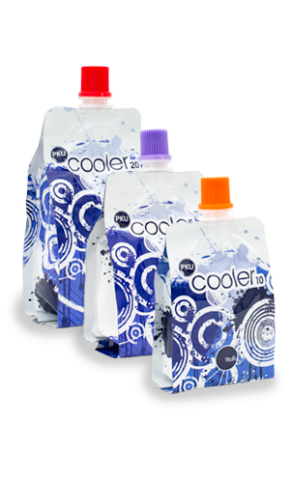There is no doubt that living with or supporting someone with PKU has its challenges. You deal with things others would never have to consider.
Like the food a PKU child throws to the floor at meal times…
“Picking it all up off the floor and chair and counting what they haven't eaten so you have an accurate amount of what is left to eat for the day to meet the required amounts.”
The daily labour of administering the protein substitute…
“He refuses to take it and it can take up to 45 min for him to finish one with a lot of upsets.”
Navigating a social life…
“I would love to just say ‘Let's go out for dinner!’ and not have to sit there thinking of where to go that will cater for me as well. It makes me feel like a burden within my friendship group.”
Pretending your condition doesn’t exist…
“She hasn't told many of her friends and eats lots of things she shouldn't.”
And having to deal with the consequences…
“I have mood swings, extremely tired and want to sleep all the time and feels like this is a grey cloud hanging over my head, but not depression.”
“I find it difficult to plan, be organised and find that I lack energy, enthusiasm and motivation. I have blank moments where I can't think or get my words out that I am trying to say. I experience anxiety and I get paranoid. All this impacts my work life as my job is very fast paced.”
Which leads to a downward spiral…
“If phe levels are raised, then your ability to stick to the diet is diminished leading to a vicious circle scenario.”
The above are all verbatim excerpts from an online survey conducted on the PKU community (Ford et al., 2018). Confronting but true.
We know that to get the best outcomes, our condition is to be managed for life. Unmanaged PKU can affect the way you think, feel and act.
Our approach to our diet plays a large role in how well we’re able to manage. We can’t believe having a positive attitude will ensure everything will go our way. Because it won’t. Everyone slips up. Everyone has off days. Everyone fails. That is being human. However, arming yourself with the skills and the right attitude to navigate resources and get the support you require will set a sturdy foundation.
Patient empowerment is a strategy to help achieve this. It is the process that enables a person to gain greater control over decisions and actions affecting their health. So what does it mean to be empowered, in a patient sense?
It means, parents, carers or individuals with PKU drawing on personal resources to be able to manage their condition in their daily life. Some aspects of personal empowerment include.
1. Self-Awareness
Check-in with yourself. Recalibrate.
Identify your barriers.
Know when to ask for help.
This could be in the simple form of identifying and acknowledging where you slip up and why you may fall off the bandwagon at times.
Personally, I know I started slacking taking my blood spots and became complacent in counting my protein. I reached out to my metabolic team and put a plan in place. I would send in more regular bloods – every Monday, and keep a diet record for a few days.
Times like this is when I need help and support . Know that there is support and it is OK to ask for help.

2. Self-Efficacy
Have a ‘CAN DO’ attitude.
Self-efficacy is the belief that you can successfully implement a behaviour required to achieve a certain outcome.
A ‘can do’ attitude is important and something that I think is very critical to continued adherence to the diet. Even if things don’t quite go to plan, this ‘can do’ attitude continues in the face of adversity.
3. Confidence
Confidence in yourself to achieve.
Confidence to ask for help.
I really don’t believe anyone can fail. Something might not go to plan but everything is a learning experience. You can learn what not to do again.
If you find yourself stuck and unable to get yourself back on track, have the confidence to ask for help. Reach out to other PKU friends, to your clinic or to your family. There is no shame in doing this.
4. Coping Skills
Reach out.
Set goals.
Watch others.
Reach out to your clinic. A good relationship with your clinic is critical to management. Write an email or phone and have a chat about what you have identified as your barriers to sticking to diet. Talk to your team about any symptoms you experience. Talk about any situations you may need some extra guidance such as planning for vacations, holidays, school or even work. Talk about issues you encounter day to day, keeping organised, remembering to take your formula or impact of sport on diet. Discuss any challenges that may have come up as a result of these events.
Set goals. Start small. Maybe incorporate one free meal a day. Start Sunday meal prep days. Set dates for regular blood spots or make an effort to try a new food or recipe each week.
Watch others. Facebook. Instagram. Attend events. I have found so much inspiration and support from Facebook and Instagram feeds. But most of all meeting and connecting with other PKU people across the globe. Recipe ideas, travelling hacks, and interesting quirks we all share. It’s amazing the support you receive!
Having PKU is challenging. And at times it has brought up feelings of failure and shame for myself. After having that one biscuit too many, accidentally eating a serve of normal pasta, or opening an email to see a high level, sometimes these events can marinate in the back of your mind.
I failed. I can’t do this. Everyone else seems to find it easy.
This is one of the main reasons I decided to start my Instagram page bianca.pku.life
To shed light on my life with PKU.
An environment of understanding and connection is one where shame shouldn’t exist.
Everyone experiences challenges, and you’d be surprise how many of us experience the same things.
Everyone’s story deserves to fall on understanding ears. Have the courage to tell the story of who you are. To share your imperfections. Fully embrace your vulnerabilities, as this is what allows growth and change, but also helps others along the way too.
So do you want to gain greater control over decisions and actions affecting your health?
I encourage you to take a closer look at your life; connect and seek support and guidance along the way to help you manage everyday life.
References:
- Ford, S., O’Driscoll, M., & MacDonald, A. (2018). Living with Phenylketonuria: Lessons from the PKU community. Molecular Genetics and Metabolism Reports, 17(August), 57–63.https://doi.org/10.1016/j.ymgmr.2018.10.002











